Does drinking natural wine actually have any noticeable effects? (What even is natural wine?!). When I tried natural wines I had my doubts that I’d actually FEEL different. But, 2 years into drinking Dry Farm Wines almost exclusively and I’m here to report exactly how natural wine has changed my daily. (Spoiler, this might be the discovery of my lifetime).

By: Lisa Fennessy
This post is sponsored by Dry Farm Wines, a subscription for organic, natural and biodynamic wines. As always, The New Knew only works with brands who we trust are making the world a better place.
When I tried my first sip of natural wine, I thought, “This is it. Jesus turned water into wine and I’ve died and gone to heaven.” And it’s the first time I ever felt like that when choosing natural anything over conventional anything.
Tasting natural wine is not like taste testing organic broccoli v. conventional broccoli or grass-fed beef v. conventional beef. I can appreciate the long-term benefits of eating organic broccoli over conventional but it’s not like I benefit from a difference in taste and effect in the moment.
Natural wine on the other hand? I was sold the moment it touched my lips. It tastes lighter, crisper, more refreshing and…alive. It’s easy and enjoyable to drink, and better yet, it doesn’t affect my sleep or leave me with a hangover the way conventional wine does.
Dare I say this is truly the best invention in my personal lifetime? It’s a contender for sure. But before we talk more about that, let’s back up and take a deeper look at what “natural wines” are exactly.
IN THIS POST:
- What are natural wines
- I tried natural wine and this is what happened
- How to try natural wine
- Natural wine FAQ
What are natural wines
There is no standard definition of what a natural wine is but the following are some key concepts natural wines can embody. Ideally a natural wine will meet all of the criteria below but most likely it won’t considering this type of wine represents only 0.01% of the world’s wine production. The only place I’ve seen all of these criteria consistently being met is via Dry Farm Wines—the world’s largest natural wine company. But regardless of if you are buying via Dry Farm Wines or at your local purveyor, it’s good to know what you want or what to look for in a wine so you too can ask questions that will get you what you want.

Naturals wines are alive
Commercial wines are filtered to get rid of nearly all bacteria and sediment. Natural wine keeps those beneficial bacteria in.
Natural wines are typically dry farmed
When a crop is “dry farmed” it means the soil was not conditioned via an irrigation system. Grapes that are irrigated can be diluted in flavor and nutrient density. The problem with this is it’s hard to dry farm grapes. Grapes can only be dry farmed in regions that have naturally supportive conditions—which is why not every vineyard can practice this farming tactic.
Natural wines have low to no sugar
Conventional wines have sugar added to them to speed up the fermentation process. Once fermentation reaches the desired alcohol percentage, they are bottled and sold. Want to speed up the process? Add more sugar. Natural wine however is left to fully ferment without added sugar or human intervention.
Natural wine can be lower alcohol
I say “can be” because the term “lower” is relative. From what I’ve observed, the average alcohol percentage in wine at the liquor store is 13%-15%. Dry Farm Wines defines “low alcohol” wine as anything below 12.5%. When I started paying attention to the alcohol percentages on wine labels, the cause and effect correlation was really shocking. Drinking two glasses of 15% alcohol wine will interrupt my sleep and give me a hangover while drinking two glasses of 11% alcohol wine won’t do either of those things.
Natural wine uses non-GMO yeast
When I heard this I was like, “Oh so most wines are made with GMO yeast? EW! UGH!” And then I was like, of course they are, it’s cheaper and more abundant so why wouldn’t they? However natural wines are fermented with non-GMO yeast—and if you are lucky you will get a wine maker who uses a non-GMO yeast that’s regionally sourced too.
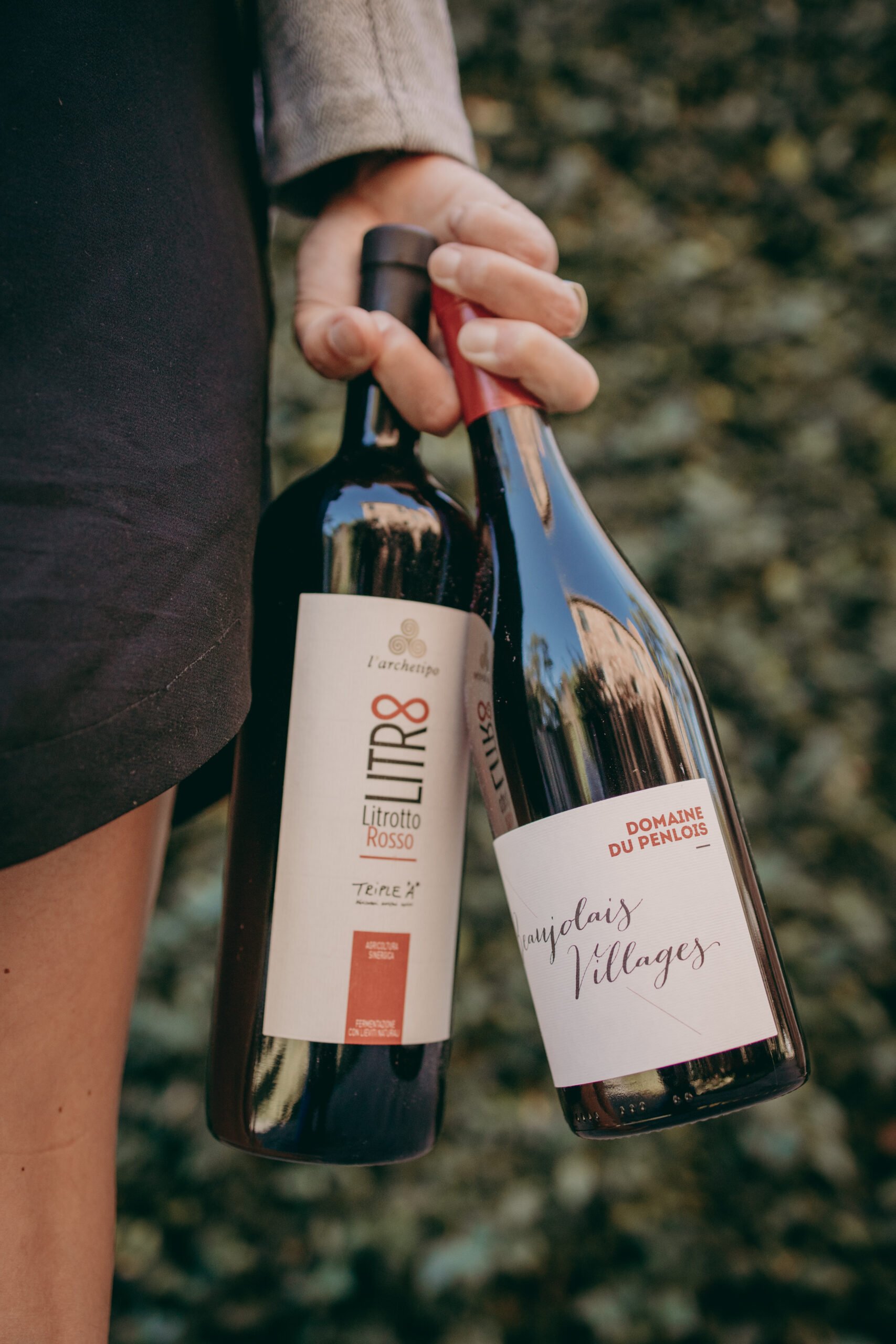
Natural wines use organically grown grapes
Did you know that grapes are considered to be part of the “Dirty Dozen”? The Dirty Dozen is a list that’s generated by the Environmental Working Group that details out the 12 types of produce that contain the highest levels of pesticides because of how they’re grown. This list is updated annually. Grapes show up on this list year over year because they are especially porous and have a high water content making them more prone to absorbing pesticides compared to other types of produce. This is clean living 101, but pesticides aren’t doing our bodies or environment any favors.
*Don’t confuse wine that’s labeled “made with organic grapes” with “natural wine”. These are not the same! The former is typically conventionally processed wine sub organic grapes.
Natural wines are typically left unfiltered
A typical part of the conventional wine making process is heavy filtration which consequently removes compounds that enhance the texture and flavor. (This is also where artificial color and lab-created yeast strains get added.) Leaving the naturally occurring sediment allows for wines to retain their nuance and complexity.
Natural wines do not have a crap ton of additives
I covered this in another post, but my mind was blown when I learned that conventional wines can have up to 76 additives. These can include defoaming agents, artificial coloring, extra sugar, high fructose corn syrup, ammonia (hello hangover!), GMO bacteria and yeasts, fining and clarifying agents like fish bladder, casein or polyvinyl-polpyr-rolidone (PVPP) and sulfites. Um, GROSS. Once you learn this you can’t unlearn it and now all I can see is the colorant “mega purple”.
Natural wines have low sulfites
Technically it’s impossible to make a completely sulfite-free wine. Wine yeast actually produces sulfur dioxide (SO2) during the fermentation process (SO2 becomes sulfite when combined with oxygen) so any sulfur in wine will eventually become sulfite.
However, conventional wines often have upwards of 350/400 ppm sulfites while Dry Farm draws the line at 75 ppm. While not officially bad (unless you’re sensitive to sulfites) natural winemakers argue that less sulfites allow for a more vibrant and diverse wine.

RELATED: Make Sure Your Wine Is NATURAL: Dry Farm Wines Review
I tried natural wine and this is what happened
I’ve had my Dry Farm Wines subscription for over two years now and I know two things to be true. First, it’s my favorite subscription out of all the subscriptions I get (and that’s saying A LOT!). And second, I can tell you with 100% certainty these are the differences I notice.
My food tastes better
After I found out that most conventional wines are full of added sugar and high fructose corn syrup (to make them cheaper to make, to cater to a sweeter American palate, and so on and so on–sigh) they became less drinkable and more cloying. Natural wines are lighter, more effervescent and delicate and they don’t dull or numb my palate like conventional wines do. I also find I can play with flavors more like pairing a medium-bodied red with lighter foods and the wine compliments without overpowering.
I’m happier the next day
Hey guess what? When you wake up well-rested in the morning without a headache you feel happier in general. I mean seriously, where was Dry Farm Wines in my 20’s?! When I switched to natural wine I was blown away by the difference in how I felt both in the moment and the next day.
I get better sleep
Speaking of sleep, it’s a pretty well known fact that alcohol can mess with your sleep quality and sleep cycle. Natural wines have less alcohol (typically less than 12.5% by volume) and they allow me to enjoy the moment without regretting it later.
My gut health seems better in general
Now, I’m no gut health professional but you know that yucky bloating feeling that makes you feel like you are 2 seconds away from sh*tting yourself all day long? Well, say goodbye to that. Interestingly enough, you know the sediment you sometimes see at the bottom of your wine glass? With natural wine that is actually probiotic bacteria. Believe it or not, combined with lower sugar (and lower carbs) natural wines can have similar benefits to fermented foods like kimchi and miso. Am I saying natural wine is a health food? No. But I’m also not, not saying it. 😜
RELATED: What natural wine do they serve at Atlas Atlanta? I got you.
How to try natural wine
If you are curious about trying natural wine to see if it lives up to the hype, I recommend starting with Dry Farm Wines. They meet all the criteria above and they taste SO GOOD. My personal preference is 6 bottles of red monthly but I like mixing it up in the summer and getting their rosé box and I always look forward to their orange wine box in the fall.
But even better than that, they have a 100% happiness guarantee so if you hate it, you get your money back. But let me be the first to tell you that won’t happen because 🤤🤤🤤.
Order through this link and get an extra bottle for just a penny!

TNK Team Note: This article contains affiliate links. TNK uses affiliate links as a source for revenue to fund operations of the business and to be less dependent on branded content. TNK stands behind all product recommendations. Still have questions about these links or our process? Feel free to email us.
Natural wine FAQ
Dry farming relies on natural rainfall for growing grapes. It produces a better tasting (less diluted) grape and it’s overall more sustainable for the land. Learn more about natural wine here.
Natural wine can be lower alcohol. I say “can be” because the term “lower” is relative. From what I’ve observed, the average alcohol percentage in wine at the liquor store is 13%-15%. Dry Farm Wines defines “low alcohol” wine as anything below 12.5%. When I started paying attention to the alcohol percentages on wine labels, the cause and effect correlation was really shocking. Drinking two glasses of 15% alcohol wine will interrupt my sleep and give me a hangover while drinking two glasses of 11% alcohol wine won’t do either of those things. Learn more about natural wine here.
There is no standard definition of what a natural wine is but here are some key concepts natural wines can embody. Ideally a natural wine will meet all of the criteria below but most likely it won’t considering this type of wine represents only 0.01% of the world’s wine production. The only place I’ve seen all of these criteria consistently being met is via Dry Farm Wines, the world’s largest natural wine company. But regardless of if you are buying via Dry Farm Wines or at your local purveyor, it’s good to know what you want or what to look for in a wine so you too can ask questions that will get you what you want. Learn more here.
When a crop is “dry farmed” it means the soil was not conditioned via an irrigation system. Grapes that are irrigated can be diluted in flavor and nutrient density. Learn more about natural wine here.

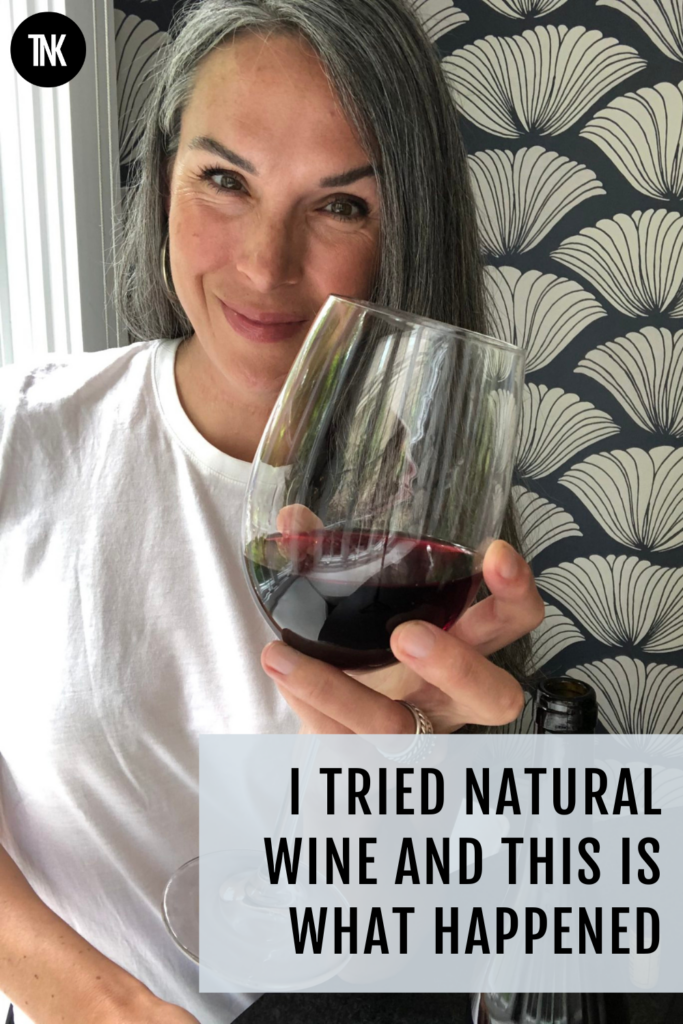
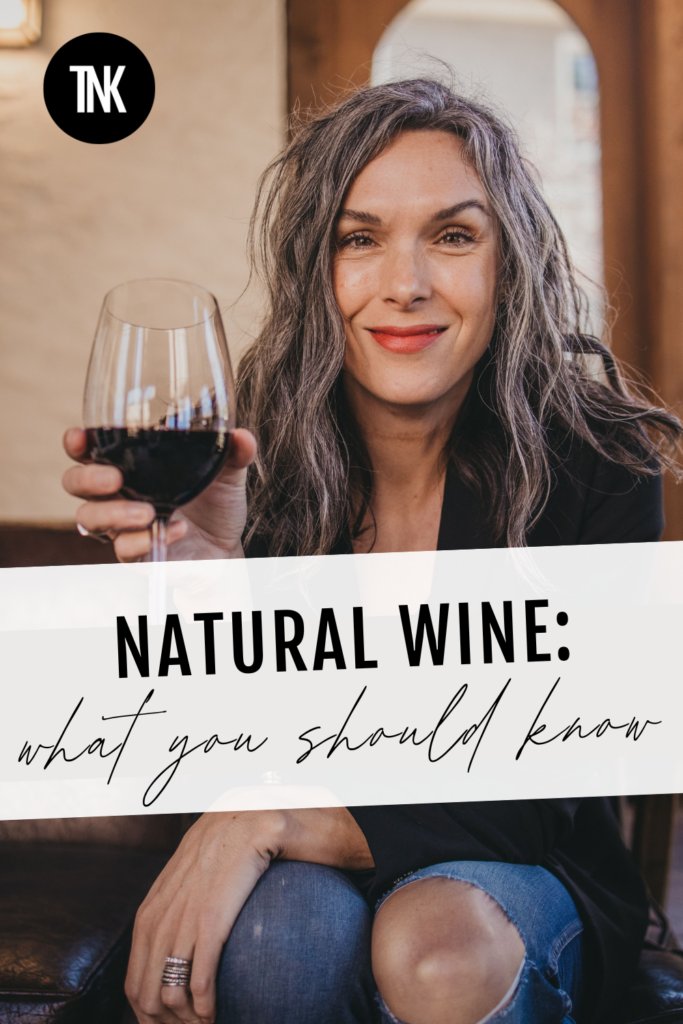


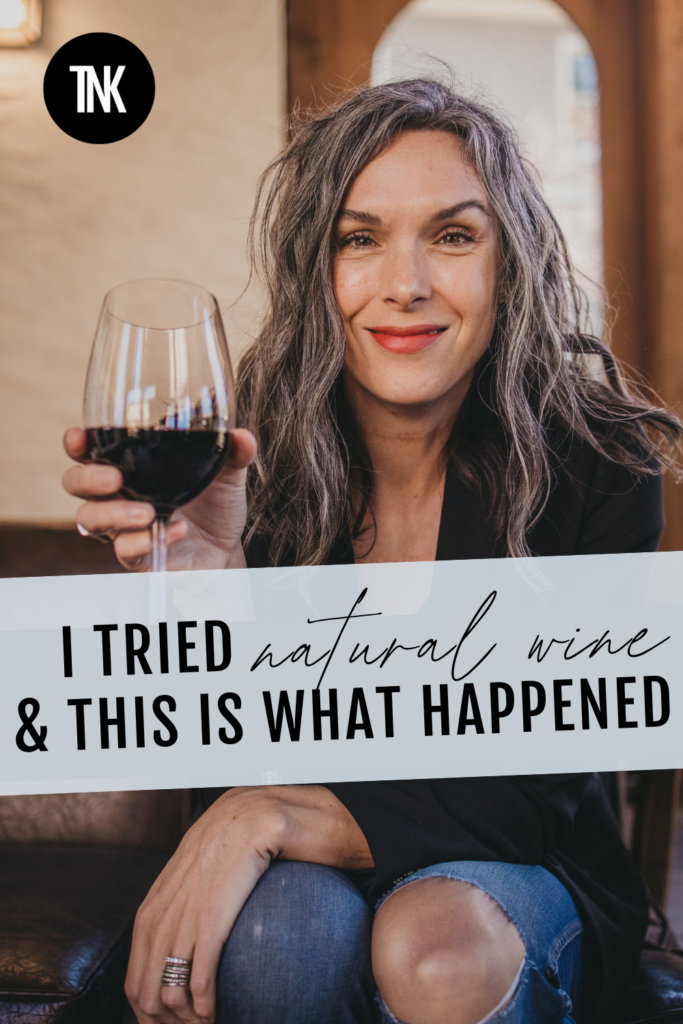

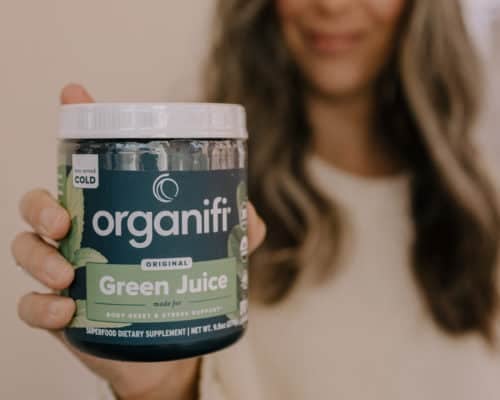
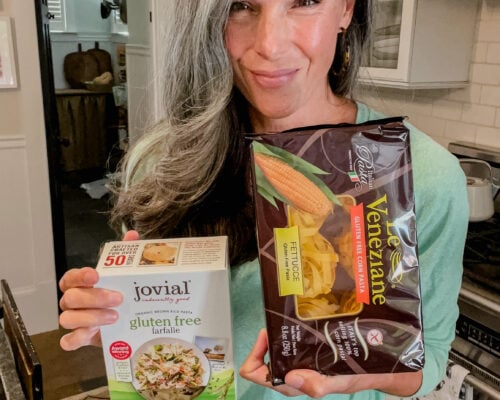

Bea
August 13, 2023Have you tried Avaline? I’d love to know how dry farms compares.
Lisa Fennessy
August 14, 2023Hi Bea! I haven’t but overall they look good. I like how some of them are Ecocert certified which is cool. You asked how they compare and while I can not comment on taste, the one thing that sticks out to me is with Dry Farm Wines, all wines are dry farmed, all wines are made with non-GMO yeast, all wines are lab tested to be under 12.5 % alcohol etc. With Avaline, I see some that some are and some are not the previous. I also see that they only work with specific growers where as DFW imports wine from all over the world and each month you get something new and different. xo, Lisa
Kent Williams
March 6, 2024Hi Lisa. like you, i have tried Dry Farms Wines and the wines and the service they provide are excellent. we now use exclusively their wines at our lodge in Alaska, home ranch in Montana, our yacht and home in Baja.
when we get a monthly shipment, we try each right away and the ones we like, we order cases before they are out of that vintage. the owner of the company even called one day to ask what we were doing with all the wine. i had to tell him we were “stocking up” and the orders will slow down.
i enjoyed your article and made me assured we are on the right course! Cheers, Kent